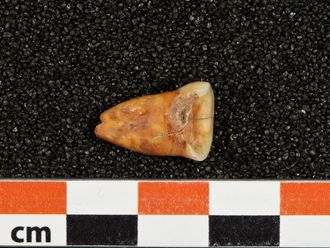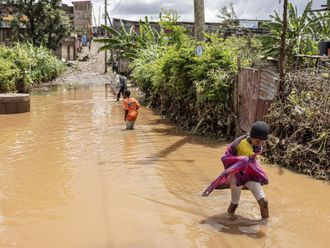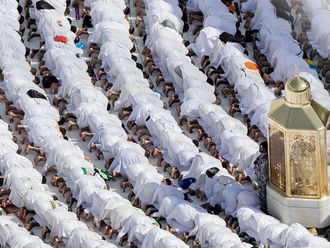Maidiguri, Nigeria: Suspected Boko Haram insurgents rounded up and shot dead dozens of people in a raid in a town in northeast Nigeria on Wednesday, military and local sources said, part of a resurgence of attacks in Borno state in the past month.
"Many people were killed," said a military source. The casualty figure "may be very high," he said.
The New York Times reported that up to 150 people were gunned down in three locations, according to witnesses, making the attacks, if confirmed as the work of Boko Haram, among the bloodiest orchestrated by the extremist group this year.
The massacres took place as men were breaking the daily Ramadan fast at about 6:30 pm, eating dates in small community mosques in the town of Kukawa in Borno state, the center of Boko Haram's bloody campaign against the government.
Alhaji Habib Kakero, a former local official in the town of Kukawa near Lake Chad, said the suspected militants attacked in the early evening and killed many people.
Bashir Ahmed, a member of a local self-defence group, said he had been told by a colleague who fled the attack and then returned to the town that they found 97 bodies, some badly charred because the attackers had set houses ablaze.
There was no immediate official comment from the security forces nor a confirmed death toll.
Boko Haram insurgents have killed thousands of people and left about 1.5 million others displaced in a six-year-old insurgency to create an Islamic caliphate in the northeast of Africa's most populous nation and top oil producer.
At the end of last year the group controlled an area roughly the size of Belgium but they lost huge chunks of territory when the military went on the offensive in the months before of a presidential election in March.
By then, the military said it had taken back all but three out of 20 local government areas previously controlled by the Islamist militants.
But the last month has seen a resurgence in attacks, many in Maiduguri, the biggest city in northeast Nigeria.
Intensified campaign
New President Muhammadu Buhari moved the army's command centre for the campaign against Boko Haram to the Borno state capital after coming to power.
On Tuesday, gunmen attacked two nearby villages elsewhere in Borno state killing 48 people, Mohammed Tahir Monguno, a member of the lower house of parliament, and a police source said.
"The terrorists attacked the twin villages of Mussaram I and Mussaram II in the night. They went there in the night when the villagers were resting after the day's fasting and assembled them before opening fire on them. From reports given to me," the legislator said by phone.
President Muhammadu Buhari, who was inaugurated on May 29, has held talks with officials from neighbouring countries Chad, Niger, Cameroon and Benin to set up a regional force to tackle the insurgents.
The fight against Boko Haram is also expected to be high on the agenda when Buhari travels to Washington to meet U.S. President Barack Obama on July 20.
Officials in Borno state suggested that the sect was responding to the belligerent tone of Buhari, who has vowed to wipe out Boko Haram.
He has taken steps to augment the military forces confronting the group - in contrast to his predecessor, Goodluck Jonathan, who was accused of allowing the violent uprising to fester for years.
This week, Buhari's vice president, Yemi Osinbajo, was in Maiduguri, the capital of Borno state and a city that during the previous administration rarely, if ever, received visits from top federal officials.
Additional troops were deployed in Maiduguri this week to confront the insurgents.
Retaken
The Nigerian army has claimed in recent months to have retaken most of the towns and villages held by Boko Haram over the last year. Yet the group continues to mount regular attacks on civilians, particularly suicide bombings. There were two such bombings outside Maiduguri as the vice president was visiting.
"Most of the boys who pulled out of Sambisa went to those areas," said Hussaini Monguno, a security adviser to Borno state's governor, referring to Kukawa. "It is quite worrisome."
"They just want to register their presence," Monguno said. "They want to show they are strong, and still stronger."












